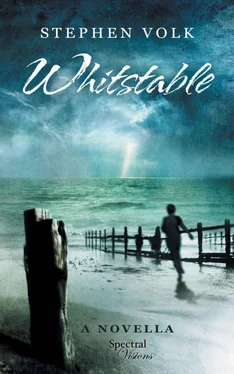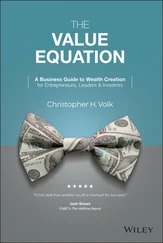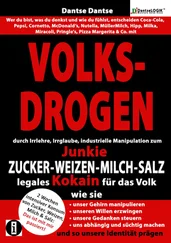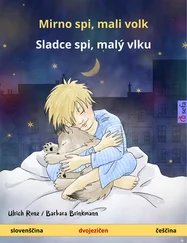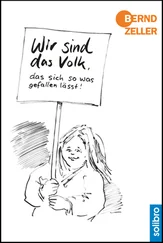The boy, sitting next to him and finishing a sherbet fountain through a glistening shoot of liquorice, said nothing for a while in the accompaniment of sea birds, then, when seemed remotely fitting, pronounced that the vehicle on display was a Mark 1 and had ten speeds. Cushing pointed with a crooked finger and said there was no attachment for a lamp, and the boy said he knew, and they were made like that. He said it was called a Chopper, which Cushing already knew but pretended he didn’t and repeated the word, for all the world as if the emblazonment had been invisible. But the object was new and gleaming and admirable, and dispensing some wisdom since he could, he advised the boy to look after it. Possibly the boy looked at the scuffed, worn, weary Triumph and thought that was like an elephant telling a gazelle to lose weight. But he’d been brought up by his mother not to cheek his elders, not that that worried him a great deal when it was called for, but on this occasion he chose to hold his tongue and nodded, meaning he would look after it. Of course he would. He wanted it to look new and gleaming forever.
When the sherbet was finished the boy walked to the rubbish bin and dropped it in. When he sat back down he chewed the remains of the liquorice the way a yokel might chew a straw, moving it from one side of his mouth to the other along slightly-blackened lips.
“You look younger.”
Cushing had almost forgotten he’d shaved for the first time in weeks. He rubbed his chin. Dr Terror’s salt and pepper was gone.
“I have a painting in the attic.”
“What does that mean?”
“Never mind. You’ll find out when you’re a bit older.”
The boy frowned. “I hate it when grown-ups say that.”
“So do I. Very much so. I’m sorry.”
He looked at the boy and beckoned him closer. He took out a handkerchief and rolled it round his index finger. “Spit on it.” Without considering the consequence, the boy did, trustingly, and Cushing used it to rub the liquorice stains from his lips while the boy’s face scrunched up, an echo, the old man thought, of the infant he once was.
“How’s your mum?” He folded the handkerchief away.
The reply was a shrug. “She cried a bit. She cried a lot, actually. I didn’t.” A show of resilience, sometimes stronger in the young. The show of it, anyway. “But I felt sorry for her. She’s my mum.”
“Naturally.”
Cushing did not enquire further. Out at sea beyond the Isle of Sheppey, a cloud of gannets hovered halo-like over a fishing vessel.
“They say it was an accident,” the boy said presently, with a secretive excitement in his voice. “But it wasn’t an accident, was it? It was you.”
“It doesn’t matter. It happened. He’s gone now. It’s over.”
“I know you can’t say because it’s secret, but it was you, wasn’t it? Acting on my instructions as a Vampire Hunter? I knew you would. I knew you wouldn’t let me down.”
Cushing tugged on his white cotton glove and pulled down each finger in turn, then lit a cigarette and smoked it, eyes slitting.
“How do you feel now? That’s the important thing.”
The boy wondered about that as if he hadn’t wondered about it until that very moment.
“You know what? It’s funny. It’s really weird. I feel a bit sad. I feel a bit like it’s my fault because I asked you to. I know he was evil and that. I know that, and I know he deserved it and everything. I don’t know…”
“It wasn’t your fault, Carl.” Would he ever truly believe that? “Look at me, Carl. Please.” The boy faced the old man’s pale blue, unblinking eyes and the old man took his hand. “When they choose people as a victim, it’s not the victim’s fault. It’s their fault. You’ve got to remember that.” Peter Cushing knew that now more than ever he needed to keep a steady gaze. “I’m the world expert, remember?”
The boy nodded and took his hand back.
“I know. No need to show off.”
Cushing trembled a smile and looked back to sea.
Periodically flicking his ash to be taken by the breeze, he gazed down between the groynes and saw a man in his twenties wearing a cheesecloth shirt and canvas loons rolled up to just under the knee and curly hair bobbing as he ran in and out of the icy surf. A dollishly small girl with a bucket and spade was laughing at him and he chased her and scooped her up in his arms, turning her upside down.
“She doesn’t like me saying it but I keep thinking about my real dad, my old dad,” the boy said, prodding a discarded Wrigley’s chewing gum wrapper with his shoe. “I keep thinking perhaps he’ll get tired of his new woman in Margate and come back to us. One day, anyway. I know he said he didn’t love my mum any more, but he must have loved her once, mustn’t he? So he might love her again. You never know. How does love work anyway?”
Cushing could hear no voices, but saw a woman join the man and the toddler on the shingle. The wind tossed the woman’s blonde hair over her face and the man combed it back with his fingers and kissed her.
“It’s very complicated, as you’ll learn, my friend. Very complicated—but in the end so terribly simple.” He felt a tiny piece of grit in his eye and rubbed it with a finger. The taste of the tobacco had gone sour and he prodded the cigarette out on the sea wall.
“Do you have bad dreams any more? You see, I have to check the symptoms, just in case. Are you sleeping well?”
The boy nodded, staring at the ground.
“Good. Very good.” The old man took off his glove, white finger by white finger. Carl was still staring at the concrete in front of him. “Remember if anything feels bad, if you are hurting, or worried… Anything you want to say—anything, you can say to your mother.”
“She won’t understand,” the boy said without looking up, as a simple statement of fact. “She doesn’t understand monsters.”
The people on the beach were gone and the waves were coming in filling their footsteps. Sometimes it seemed full of footprints, criss-crossing this way and that, people, dogs, all on their little journeys, but if you waited long enough or came back the next day the people were always gone and the only consistent thing was the slope and evenness of the shore.
When Cushing put his single white glove back in his overcoat pocket he discovered something he’d forgotten. Something he’d put there before going to the Oxford to meet Gledhill. He took it out and looked at it in the palm of his hand.
Helen’s crucifix.
Opening the thin gold chain into a circle he put it round the boy’s neck and tucked the cross behind his scarf and inside his open-topped shirt. The boy did not move as the man did it, and did not move afterwards, imagining some necessity for respect or obedience in the matter, or recognising some similarity to the procedure of his mum straightening his tie, in addition daunted perhaps by the peculiarity of the tiny coldness of the crucifix against the warmth of his hairless chest.
“I want you to remember what I’m going to say to you. The love of the Lord is quite, quite infinite. In your darkest despair, though you may not think it, He is still looking over you. Never, ever forget that.”
The boy thought a moment.
“Is he looking over you ?”
Cushing had not expected that question, and found himself answering, as something of a surprise:
“Yes. Yes, I believe he is.”
Then the boy appeared to remember something, something important, and dug into the pocket of his anorak. He produced a rolled-up magazine, unfurled it and thrust it in front of the man, who had to recoil slightly in order to focus his increasingly ancient eyes on it.
Claude Rains in his masked role as The Phantom of the Opera stared back at him. Garish lettering further promised the riches within: films featuring black cats, Ghidrah the three-headed monster, and Horror of Dracula —the US title of the first Hammer in the series. What he held in his hands was a lurid American film magazine called, in case of any doubt whatsoever in its remit, Famous Monsters of Filmland .
Читать дальше
